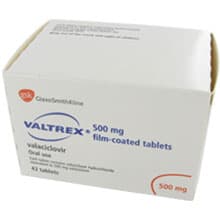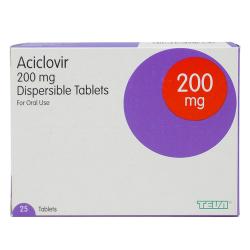Genital Herpes: start your consultation
- 1. Answer the online medical questions
- This helps our doctors to decide which treatment is safe for you.
- 2. Select your treatment
- You will see a list of recommended treatments. You can select the one you prefer.
- 3. Checkout and delivery
- Once you’ve completed the checkout, our doctors will review your answers. If all is safe, you will receive your treatment tomorrow.
Available Treatment(s)

- Effective treatment for the symptoms of HSV
- Buy Famvir online with no doctor's appointment
- Free next day delivery

- Heals painful lesions in just over 1 week
- Clears reoccurring lesions in under a week
- 65% of cases went outbreak-free for 6 months

- Clinically-proven herpes virus treatment
- Quickly tackles uncomfortable symptoms
- Treats and prevents future outbreaks

- Improves recovery time
- Reduces length of outbreak
- Treats genital herpes, cold sores and shingles
Genital Herpes
Symptoms and causes of genital herpes and treatment available in the UK
Genital herpes is a viral sexually transmitted infection that affects over 30,000 people in the UK. It is extremely contagious and is characterised by the appearance of fluid blisters and itchy red sores, although symptoms will stay hidden for the vast majority of the time. Herpes is caused by the HSV-2 strain of the herpes simplex virus, whilst the HSV-1 strain of this virus is responsible for cold sores. This infection is spread during unprotected sexual contact.
Genital herpes is an incurable infection, but it is possible to effectively manage outbreaks when they occur. Treatments such as Aciclovir, Valtrex and Famvir can significantly reduce the length of an outbreak and alleviate the discomfort of associated symptoms.
What is genital herpes?
Genital herpes (also referred to as herpes simplex virus) is a viral sexually transmitted infection that can be passed on during vaginal, anal, and sometimes oral sex. Both men and women can contract this viral infection.
As genital herpes is fairly common, there is much information surrounding the condition and how to treat outbreaks. Whilst it can lay dormant the majority of the time, when active, the sexually transmitted infection can cause the skin and mucous membranes of the genital region to become infected. This may also be the case around the opening of the anus, although this is less common. Genital herpes is a viral STI and is present in two forms of herpes, these being HSV-1 (type 1) and HSV-2 (type 2). HSV-2 is known to be far more common, as it is can be highly contagious and affects multiple areas of the body. HSV-1 as genital herpes is uncommon, however can be contracted if, for example, you have unprotected oral sex when a cold sore is present.
Genital herpes is passed on via intimate sexual contact and is classed as a long-term (chronic) condition. Resurgence normally occurs at an average rate of four to five times within the initial two years after being infected with genital herpes. Eventually, over time, the virus becomes less active and outbreaks will become far less severe.
Genital herpes causes
Like all sexually transmitted infections, herpes is spread through sexual contact when adequate protection is not used. Those who have multiple sexual partners and often have unprotected sex will be at a heightened risk of contracting this infection. Whilst this infection is most often caused by skin-to-skin contact, further medical information states that it can also be transferred via objects, such as sex toys, although this is classed as rare.
The infection itself is caused by the herpes simplex virus, of which there are two strains: HSV-1 (type 1) and HSV-2 (type 2). Genital herpes is commonly caused by the HSV-2 strain. Any form of unprotected sexual contact can spread the infection, including oral, vaginal and anal sex.
Genital herpes is especially easy to catch from blisters and sores found on an infected individual. However, genital herpes can be transferred from someone who has no symptoms at all. Therefore, it can be caught at any time.
Genital herpes symptoms
For the majority of people who contract this sexualy transmitted infection, the first outbreak will present the most severe symptoms. Such symptoms usually include:
- The development of red sores, often itchy or painful, on and around the genital area. They can also occur on the anus, rectum and thighs.
- Fever and pain during urination may also be experienced. Later outbreaks will present similar symptoms, but they will usually be lessened in severity, especially if antiviral treatments are taken.
- Primary symptoms may also include vaginal discharge (in women).
- A general feeling of being unwell can also be experienced. This includes flu-like symptoms, as well as aches and pains.
- For women, blisters and ulcers may be present on the cervix (i.e. the lower part of the womb).
Information regarding these symptoms may vary depending on the individual. For example, you may experience less outbreaks but the severity is increased, or you don't notice much discomfort at all.
Treating genital herpes
Genital herpes treatments are available to manage the infection when outbreaks occur, but it is important to be aware that there is currently no cure. Antiviral medications such as Famvir and Valtrex are often prescribed for the purpose of managing outbreaks. They are both oral medications to be taken when you experience symptoms of an outbreak. Both medications are capable of providing results in just 24 hours.
Aciclovir is another medication that is often prescribed for the first outbreak. Aciclovir comes in the form of tablets, taken orally, to alleviate symptoms. It can also be used as a preventative treatment, which can help to reduce the frequency of outbreaks.
Unlike other sexually transmitted infections, genital herpes is a viral infection and can't be cured. Therefore, it is still important to seek the appropriate information and treatment, as if it is untreated it can cause very serious health complications, including encephalitis and meningitis.
Preventing genital herpes
There are a number of methods that can be followed in order to effectively prevent genital herpes. These are as follows:
- Using a condom during sex can greatly reduce your chances of getting genital herpes. This can also help protect against a host of other sexually transmitted infections. However, due to the fact that the virus can spread to the thighs, mouth and buttocks, it is still possible that you can get genital herpes.
- Avoid having sex with your partner if you or they have blisters or ulcers, or if blisters are developing.
- Ensure that herpes isn't spread to other parts of your body, e.g. your eyes.
- Sex should be avoided during bouts of genital herpes. This is because the virus is highly contagious, even during the initial feelings of tingling. Kissing should also be avoided if cold sores are present.
- If you and/or your partner are experiencing any of the symptoms of genital herpes (as mentioned above) you could visit a genitourinary medicine (GUM) clinic or sexual health clinics to get tested for genital herpes.
Buying genital herpes treatment
Treating a genital herpes outbreak quickly can alleviate symptoms and quicken recovery time. As well as needs-be medication, you can use genital herpes antivirals as a preventive if you're prone to frequent outbreaks. At OnlineClinic, you can order Famvir, Valtrex, or Aciclovir tablets to effectively treat male or female genital herpes. To order medication in the UK, you must first complete a quick consultation to be issued a prescription.
You can now do this securely online instead of booking an appointment face-to-face. We provide this through a free no obligation consultation reviewed by one of our team of doctors. They do all the hard work for you, advising the correct treatment so you order the right tablets and dosage for you. Medication is always discreetly packaged, allowing you to get treatment delivered anywhere with confidentiality and peace of mind, and is available for free next day delivery.
medical form
medication
prescription
from pharmacy
